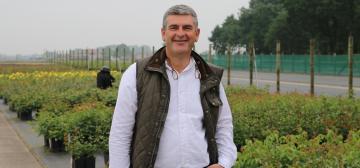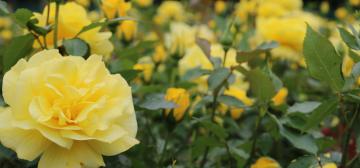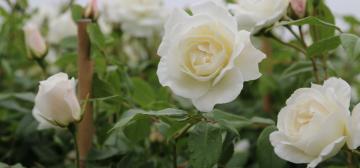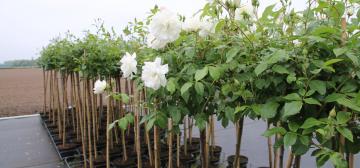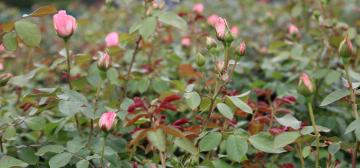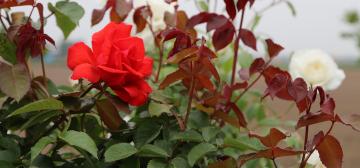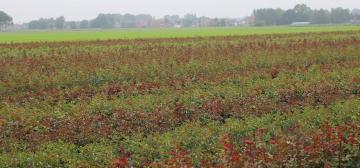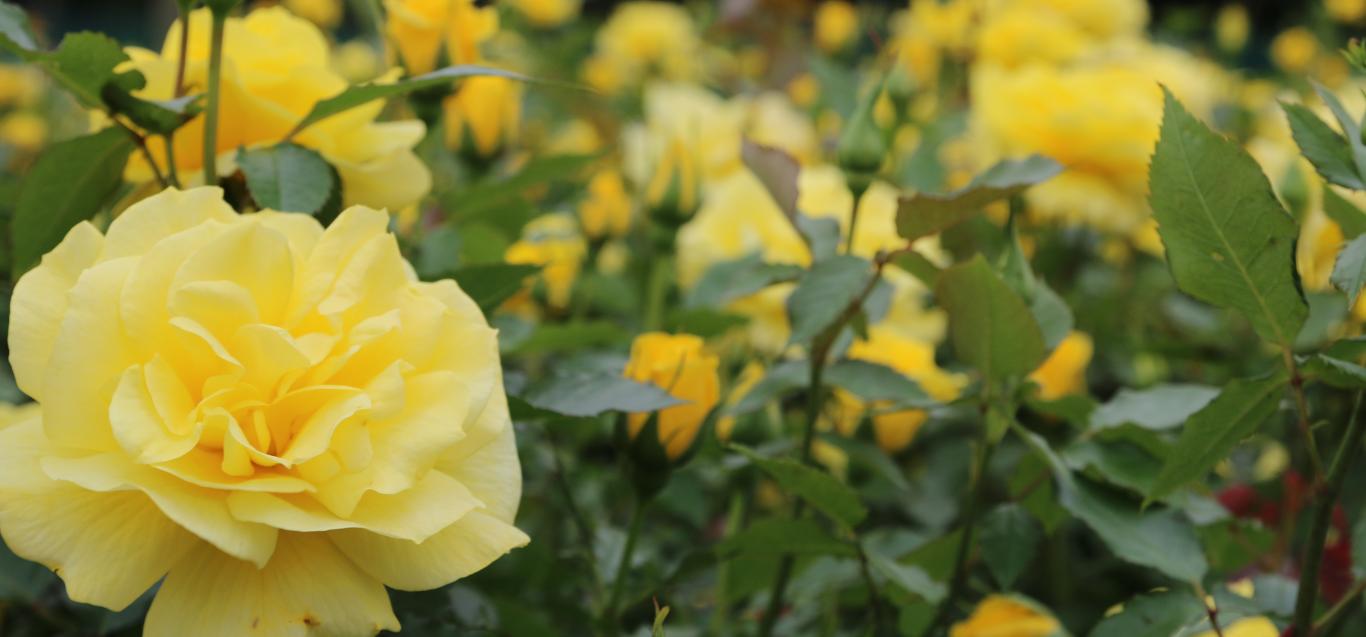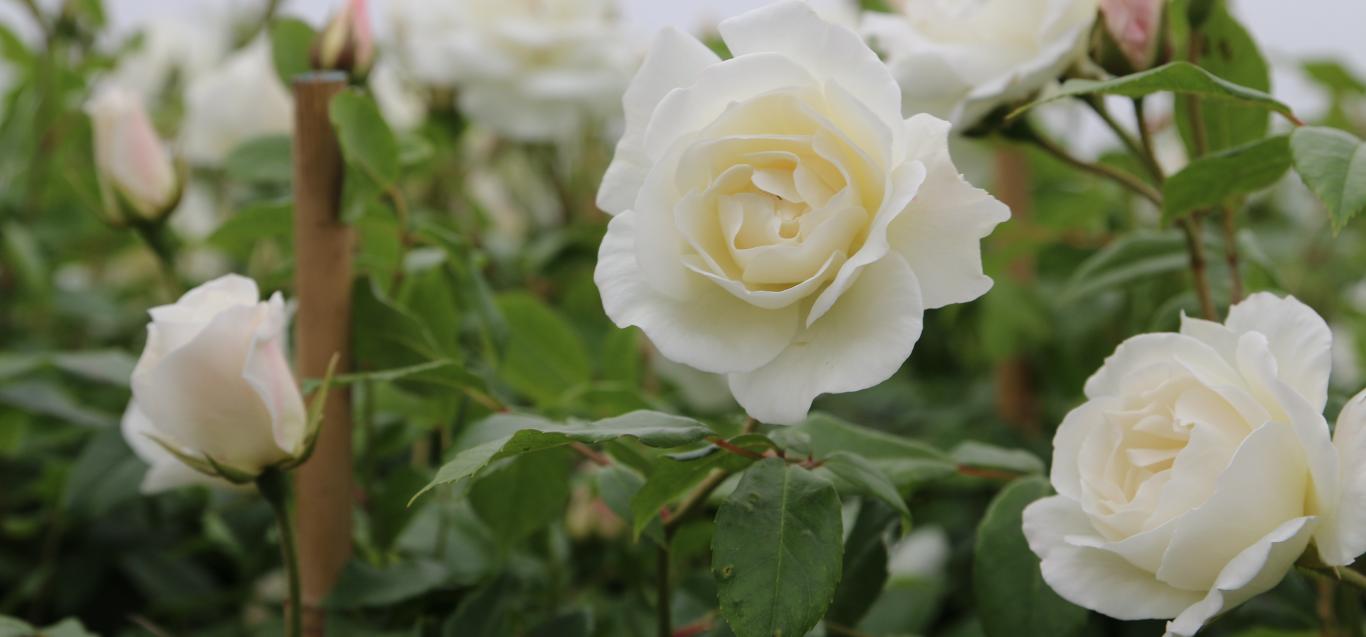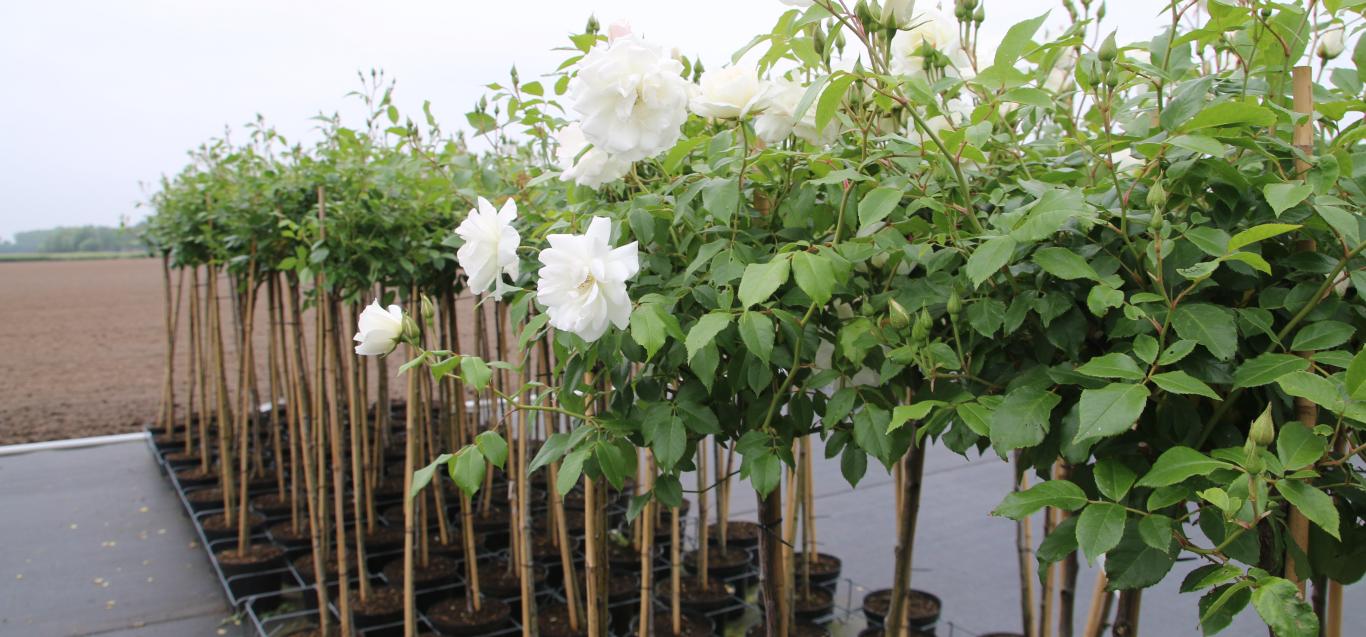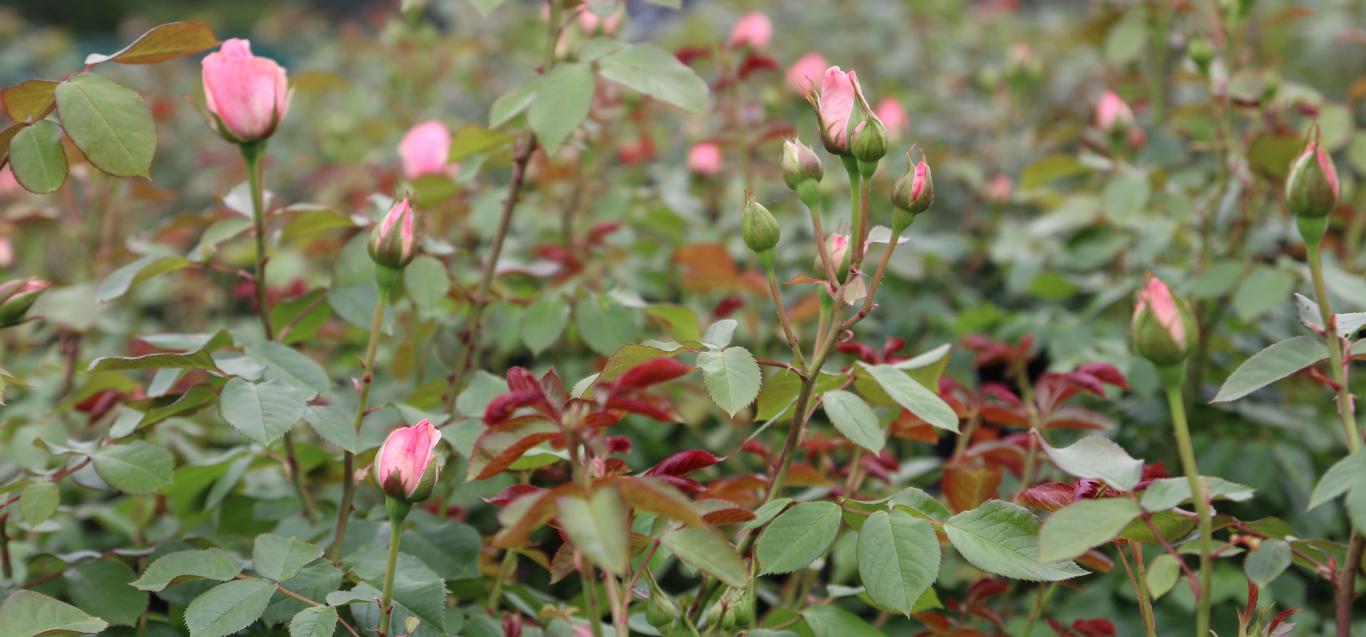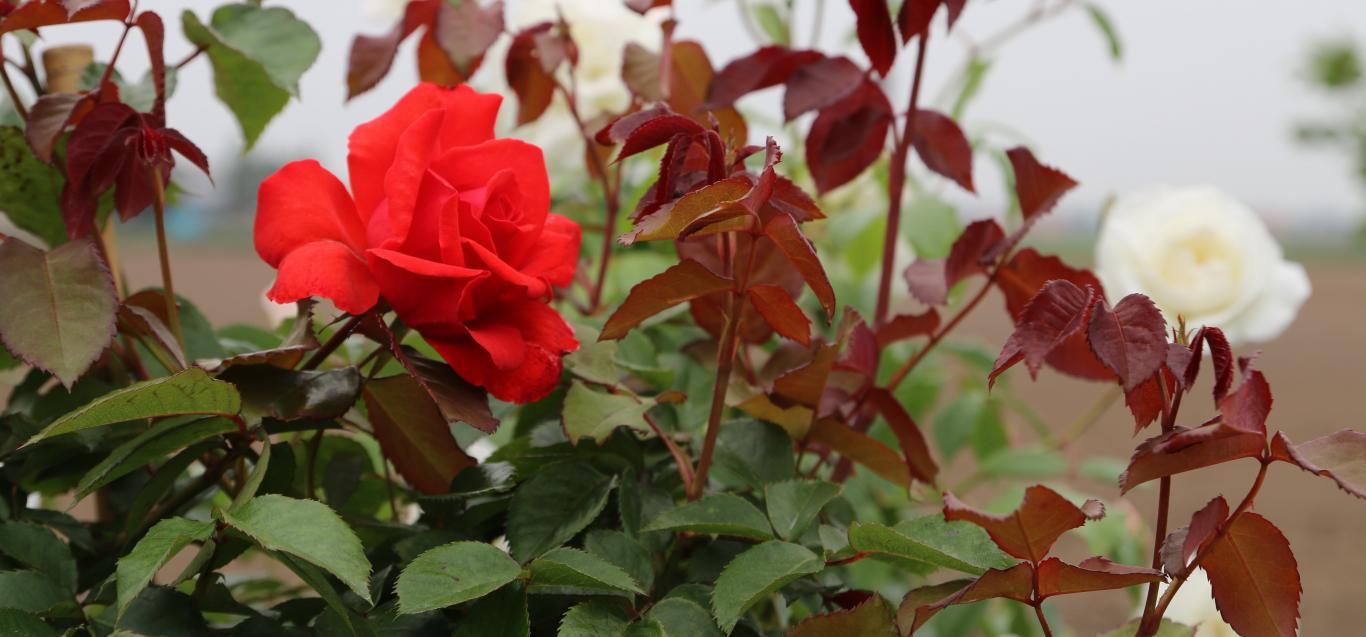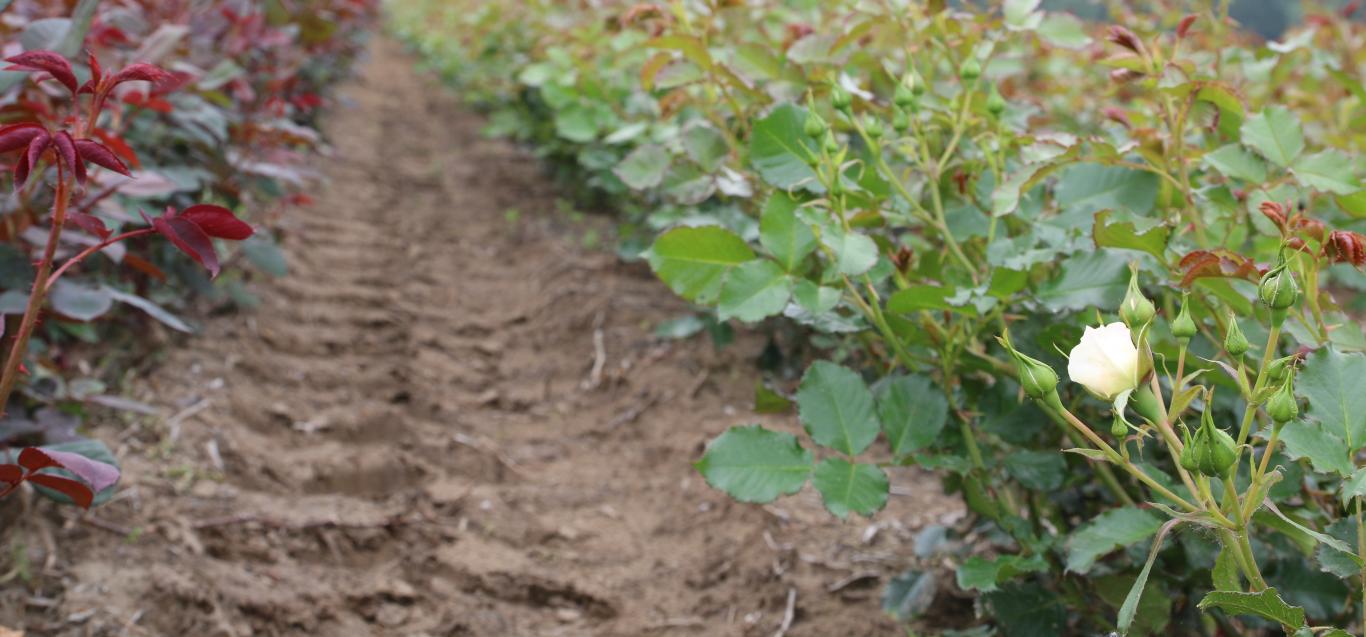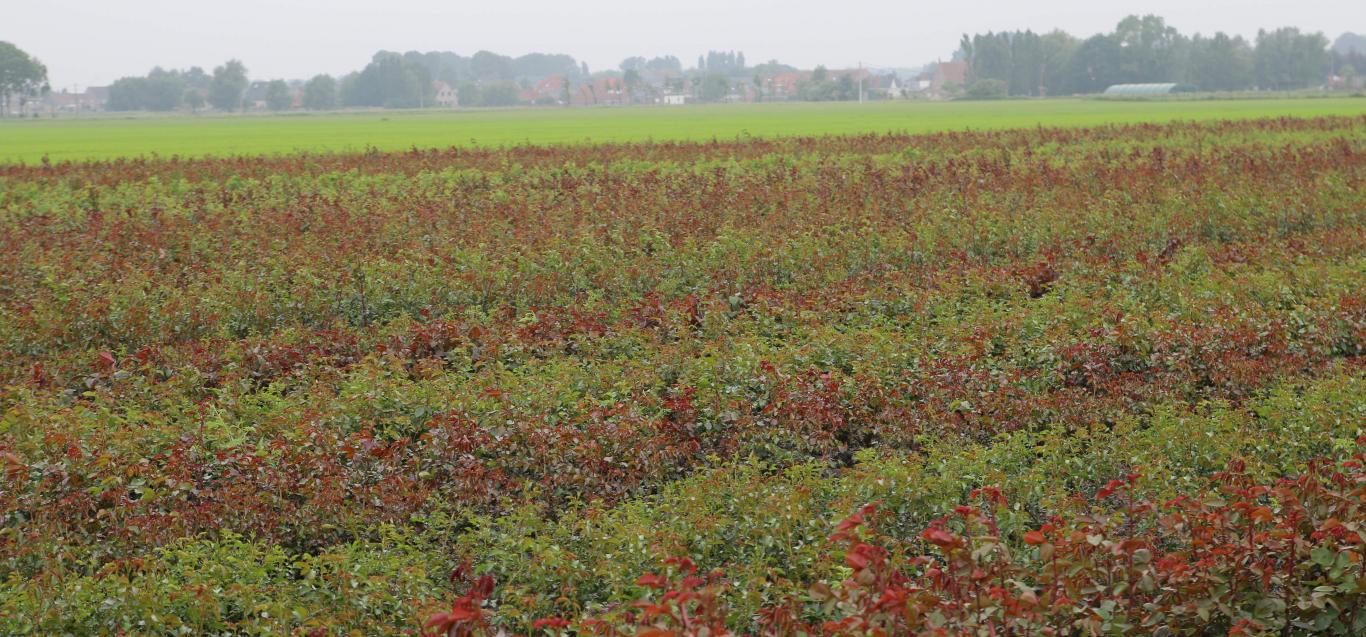This specialised rose nursery stands out due to its broad range but it also offers quite a few roses with known licences. What’s more, Neyt - Van Sante is known for the heavy quality of their plants. They can guarantee this thanks to applying enforced crop rotation so that the plants are always planted in fresh soil.
‘Our heavy quality, the authenticity of variety of our plants and the known licences that we can offer in large numbers speak for themselves.’ Patrick Neyt, manager
History
Caroline Van Sante clearly has horticulture in the blood: after all, her parents owned a large rose nursery in Wetteren. Twenty-five years ago, Caroline and her husband Patrick Neyt started a new nursery together in Eernegem. Patrick and Caroline actually wanted to start a tree nursery. But they liked the roses that they initially had as a sideline for the first few years so much, that after two years they focussed entirely on growing roses.
Investing in the soil
‘Our company covers around 28 hectares. But since we give the soil time to recover between producing roses, each year we only produce roses on around half of it. In between, we plant green manure crops, so that our roses can grow in the best possible soil. And it is precisely that approach that means we can deliver our well-known heavy quality’, emphasises Patrick.
Rose cycle
‘We start in March – April by planting one-year-old seedlings that we inoculate in the summer of the same year. The roses are then given a good year to grow so that they are ready to be sold in the autumn of the following year’, Patrick summarises the growing process. ‘Our selling season runs from September to the end of April, which amounts to a production process of around 2 years.’
Range
‘We trade around 500,000 items of almost 300 varieties of roses in production. And our range varies from ground cover plants, creepers and rose bushes to heirloom roses that we preserve. We hold licences for important selections, such as David Austin, Kordes, Meilland, Tantau and Lens’, Patrick says proudly. ‘We sell both roses with bare roots and in pots, each represents about half our offer. The roses in pots are potted just before being sold, so they are not specifically grown in pots.’
Sustainability
‘We are increasingly stimulated to produce sustainably. For us that means amongst other things that we recover water and that we are very selective in our treatment of weeds. We hardly spray at all the first year and we can remove almost all the weeds mechanically. If necessary, we spray very specifically under the plant. Growing plants in optimum condition means a reduced disease burden so we hardly need to spray.’
Export
A large percentage of our turnover is destined for export. We are not only active in Europe, but we can also see that our roses are doing well in Asia and the Middle East. And since we are aware that it is essential to spread our risks to a certain degree, we are constantly looking for new markets. Eastern Europe, for example, is a growing market, especially Poland and the Ukraine. Scandinavia is also a very interesting market where our high-quality roses are clearly appreciated, says Patrick.
Large labels
‘To help our clients with their communication with the end consumer, we constantly invest in concepts and clear photo labels on our roses. Thus, all our roses in pots have an information label with a photo. And we recently made our labels larger to generate the maximum impact on the consumer. Since they are largely led by visual stimuli when at the garden centre. And since in autumn and early spring the rose does not promote itself, we are happy to help it with an attractive photo label’, Patrick concludes.
Company in figures
-
Employees
-
2 managers
-
5 permanent employees
-
25 temporary employees (seasonal labour / working students)
-
-
Company surface area
-
28 ha ground
-
-
Export
-
France
-
Switzerland
-
Austria
-
Italy
-
Spain
-
Scandinavia
-
Estonia
-
Poland
-
Croatia
-
Middle East
-
Russia
-
